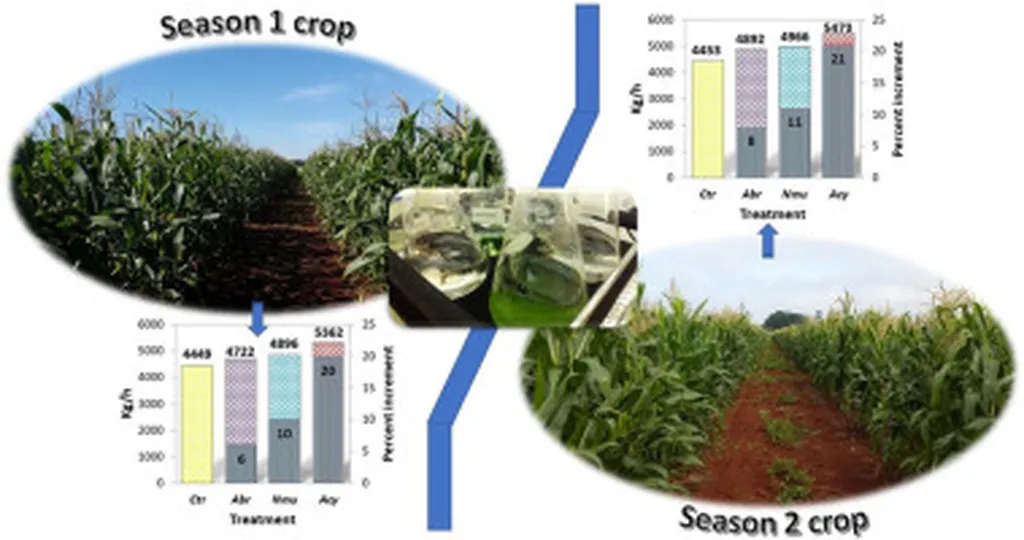In the sun-scorched fields of Türkiye’s semi-arid regions, a quiet revolution is taking root, one that could reshape the future of maize cultivation and offer valuable insights for sustainable agriculture. Researchers, led by Pakize Ozlem Kurt from the Department of Park and Garden Plants at Bursa Uludag University, have been exploring the potential of plant growth-promoting bacteria (PGPR) to boost maize yields and improve soil health, offering a promising alternative to the overuse of agrochemicals.
The study, published in Scientific Reports (translated from Turkish as “Scientific Reports”), focused on a consortium of five beneficial bacteria strains, including Azotobacter and Bacillus species, applied to four commercial maize hybrids. The results were promising, with significant improvements in soil organic matter, phosphorus availability, and cation exchange capacity, particularly at the tasseling stage of maize growth.
“The 130 mL/da dose yielded the highest grain productivity,” Kurt explained, “suggesting optimized biological nitrogen fixation and water-use efficiency.” This finding is particularly noteworthy given the semi-arid conditions of the study, hinting at the potential of PGPR to enhance crop resilience in climate-stressed environments.
The research also revealed genotype-specific nutrient responses, with elevated zinc and copper levels under inoculated treatments. While this indicates enhanced micronutrient solubilization, it also raises the potential risk of nutrient imbalance, a factor that future studies and commercial applications will need to address.
From a commercial perspective, the implications are substantial. The use of non-commercial, field-formulated PGPR consortia could offer a scalable and sustainable component of maize systems, reducing reliance on chemical fertilizers and promoting soil health. Moreover, the cultivar × dose interaction underscores the need for genotype-specific microbial strategies, a nuance that could drive precision agriculture forward.
As Kurt noted, “Our findings support the use of PGPR as a biologically based alternative to enhance nutrient uptake, root development, and soil health.” This research not only sheds light on the potential of PGPR in sustainable maize production but also opens avenues for further exploration in other crops and regions.
In the broader context of sustainable intensification, this study highlights the importance of integrating biological solutions into agricultural practices. As climate change continues to pose challenges to global food security, innovations like these could play a pivotal role in shaping the future of farming.
The study’s findings, published in Scientific Reports, offer a glimpse into a future where microbial innovations could revolutionize agriculture, making it more sustainable, resilient, and productive. As researchers continue to unravel the complexities of plant-microbe interactions, the potential for transformative change in the field of agriculture grows ever more promising.

